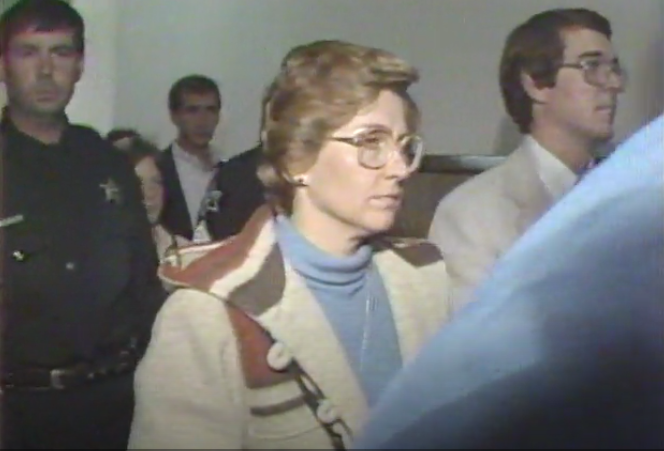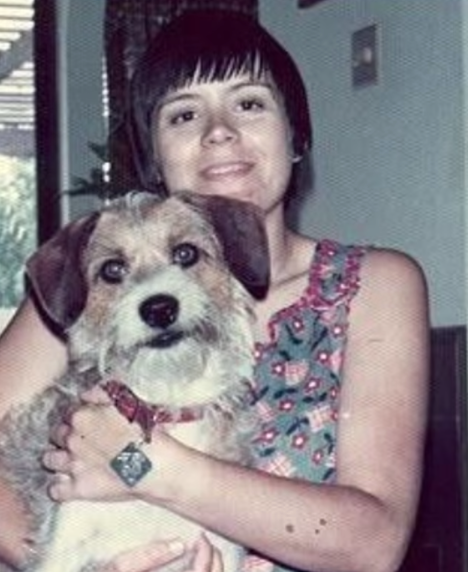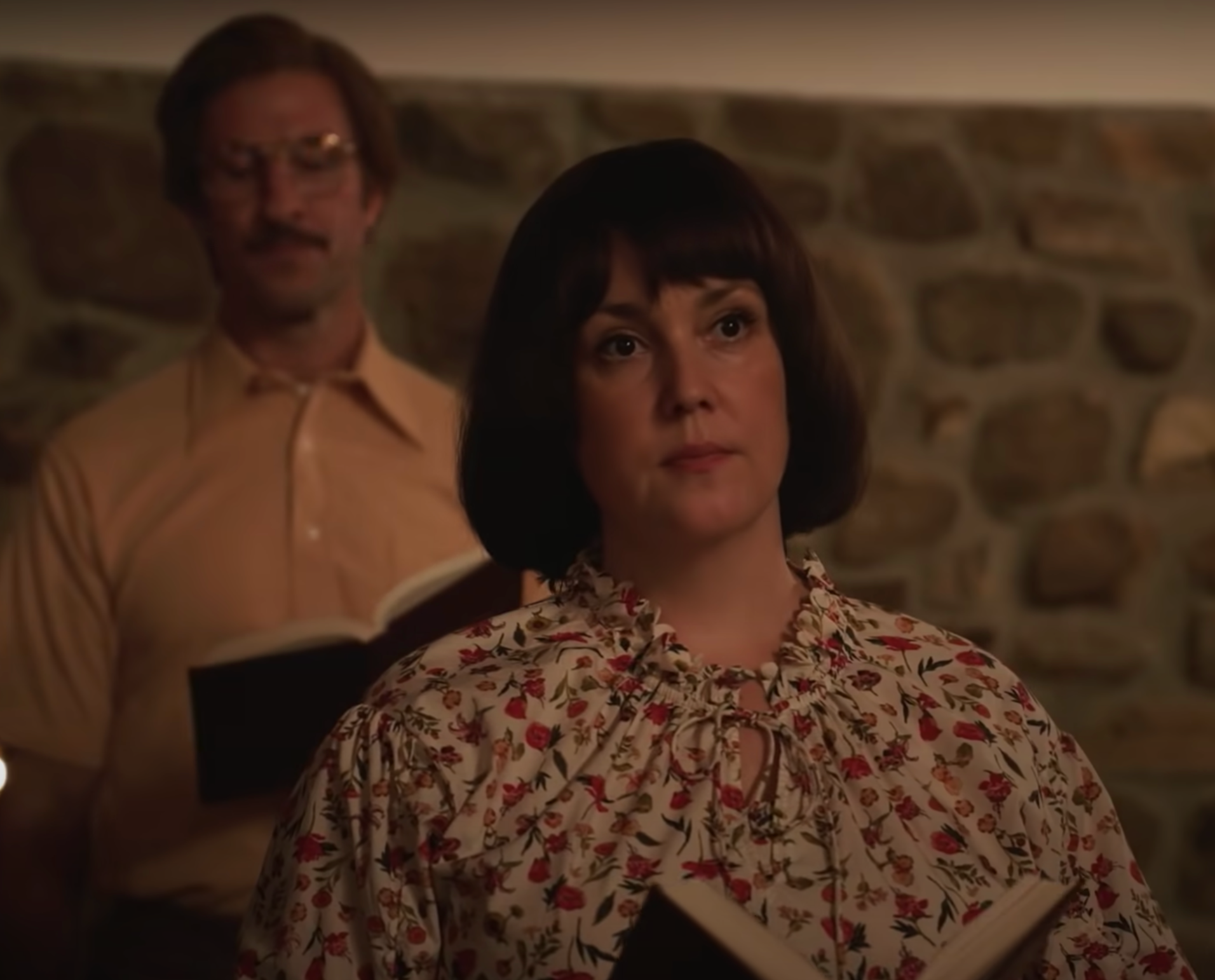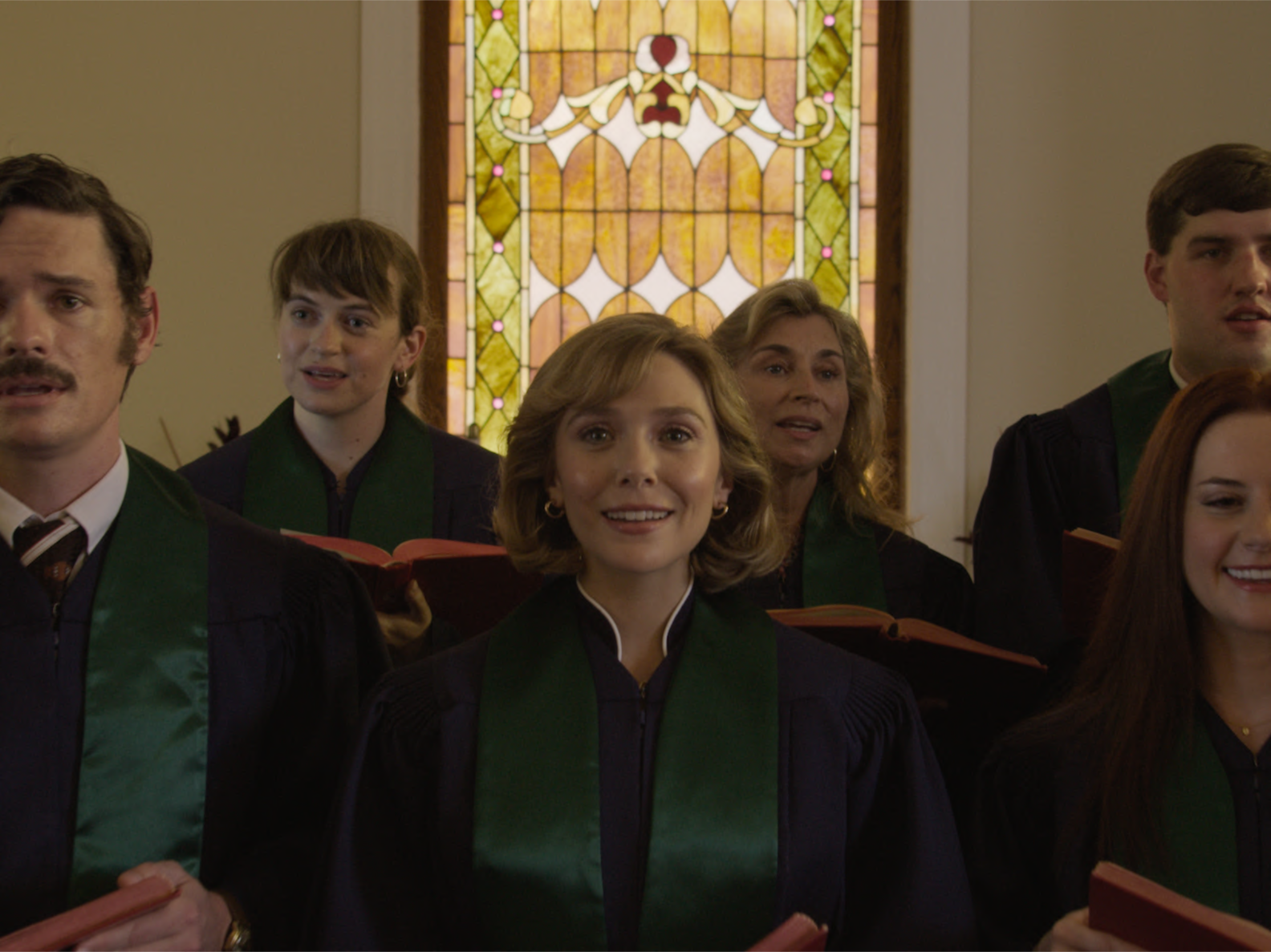Inside the grisly story of an axe killing that inspired new Hulu series ‘Candy’
As Jessica Biel and Elizabeth Olsen portray Candy Montgomery in two different TV shows, Clémence Michallon takes a look at the case that rocked a Texas community in 1980


Your support helps us to tell the story
From reproductive rights to climate change to Big Tech, The Independent is on the ground when the story is developing. Whether it's investigating the financials of Elon Musk's pro-Trump PAC or producing our latest documentary, 'The A Word', which shines a light on the American women fighting for reproductive rights, we know how important it is to parse out the facts from the messaging.
At such a critical moment in US history, we need reporters on the ground. Your donation allows us to keep sending journalists to speak to both sides of the story.
The Independent is trusted by Americans across the entire political spectrum. And unlike many other quality news outlets, we choose not to lock Americans out of our reporting and analysis with paywalls. We believe quality journalism should be available to everyone, paid for by those who can afford it.
Your support makes all the difference.Candy Montgomery wanted fireworks. That’s what she told her friend Sherry Cleckler about her affair with the man whose wife she became accused of killing with an axe.
Montgomery, a Christian, suburban housewife in northeastern Texas, was the main suspect in the death of her friend Betty Gore on Friday 13 June 1980. Gore and Montgomery had met at the Methodist Church of Lucas, of which Montgomery was an active member. In 1978, Montgomery had begun a relationship with Gore’s husband Allan.
Her story – that of a secret affair followed by a criminal trial, of testimony brought up in part by hypnosis sessions, and of Montgomery’s ultimate acquittal – will now be told in two separate limited series. One of them, Candy, stars Jessica Biel as Montgomery and started airing on Hulu on 9 May. (Elisabeth Moss was originally supposed to play the part but had to drop out.) The other, Love and Death, is expected to air on HBO Max later this year after being adapted from twoTexas Monthly articles from 1984, and will feature Elizabeth Olsen in the same role.
Montgomery and her husband Pat Montgomery moved to Collin County, Texas in 1977, according to Oxygen. Montgomery had grown up in a military family, relocating to various locations throughout her younger years. The Montgomerys had a son and a daughter. According to Texas Monthly, their marriage was comfortable – Pat Montgomery made a good salary at Texas Instruments, a technology company – but routine. Candy Montgomery, as Texas Monthly writers Jim Atkinson and John Bloom wrote in their book Evidence of Love: A True Story of Passion and Death in the Suburbs, told a friend she was “bored crazy”.
Candy Montgomery ran into Allan Gore – literally – during summer 1978, while both of them were playing on the church volleyball court. Betty had met Allan while attending college, where, according to Oxygen, he was a teaching assistant in one of her classes. The two had married in 1970 and had their first child, a daughter, prior to moving to Collin County.
Allan and Candy Montgomery’s chance meeting during the volleyball game was reportedly followed by a few weeks of flirtation, which led to Montgomery finally confiding her attraction to Allan. After some back and forth during which they weighed the pros and the cons of a potential affair, Montgomery and Allan, according to Texas Monthly, decided to have an affair starting on 12 December 1978.
Montgomery and Allan saw each other for a few months. Montgomery reportedly told Allan she was afraid the affair was getting too intense, but the relationship continued. Shortly after the birth of Allan and Betty Gore’s second child, another daughter, in July 1979, Allan began signaling to Montgomery that he wanted to distance himself from the affair and work on his marriage to Betty. It was Montgomery, who, according to Atkinson and Bloom, finally told him: “Allan, you seem to be leaving it up to me. So I’ve decided, I won’t call. I won’t try to see you. I won’t bother you anymore.”
On 13 June 1980, Allan Gore, away on business and having tried to reach his wife by phone to no avail, reportedly called his next door neighbour to ask him to check whether Betty was home. He then phoned Montgomery, who told him she had seen his wife earlier in the day and nothing had seemed amiss.
Allan reportedly asked his neighbour, Richard Parker, to go back to his house and check whether Betty’s car was in the garage. Parker and two other acquaintances from the area, Jerry McMahan and Lester Gayler, eventually set out together to investigate the residence and figure out why Betty had been unreachable. Gayler discovered Betty’s body in the utility room – although, according to Atkinson and Bloom, he didn’t see her body at first, but rather “thick, congealed reddish-brown oceans of blood glistening on the tile”. Betty, it was later reported, had been struck by an axe 41 times.

A bloody footprint suggested to investigators they should look for “someone small in stature, whether it was a child or a woman”, former Collin County investigator Steven Deffibaugh told Oxygen’s programme Snapped. According to the network, Montgomery initially told authorities that Betty and Allan’s eldest daughter had stayed at her house overnight, and that she had seen Betty in the morning to retrieve Alisa’s swimsuit ahead of a swimming lesson. It was Allan who reportedly told detectives about his affair with Montgomery. From there, Montgomery became the main suspect in Betty’s killing. She was arrested on 27 June 1980 and charged with her murder.
Deffibaugh told Oxygen that when Montgomery changed into prison clothes, staffers noticed “all these bruises and also a cut on her toe”. When Montgomery’s trial began in October 1980, her legal team didn’t seek to deny she had killed Betty Gore. But they contended she had done so in self-defence and should therefore be found not guilty of murder. Betty, they said, had attacked Montgomery first with the axe, cutting her toe.
Ahead of the trial, Montgomery’s attorney Don Crowder had called Dr Fred Fason, a psychiatrist with experience practicing hypnosis.
The admissibility of testimony provided under hypnosis varies in the US from state to state; the Department of Justice has previously noted that “the federal courts addressing the issue of hypnotically induced testimony of a prosecution witness have generally permitted the use of such testimony, holding that the fact of the hypnosis affects only the credibility of the witness and not the witness’s competence or the admissibility of his or her testimony.”


In a caveat, the DOJ added that “in the late 1980s and 1990s, the question of the admissibility … of hypnotically refreshed or enhanced testimony went into a state of ‘flux,’ largely caused by cases involving uncorroborated allegations of child sexual abuse following ‘regressive therapy’ or other forms of hypnosis-related therapy to bring out “repressed” memories of childhood incidents. This series of cases saw many convictions later reversed on appeal based upon a rethinking of the admissibility issue, and eventually resulted in the adoption in the Federal courts of a ‘case-by-case approach’ in which the court has ‘discretion to balance all of the factors to determine the reliability of the evidence and the probative versus prejudicial effect of the testimony.’”
In Montgomery’s case, Fason said his sessions with Montgomery unveiled childhood trauma as well as her memories from the day of Betty Gore’s death. Per Atkinson and Bloom, by the end of the first session, “Fason had done what Crowder had asked him to do. He had found … the trigger of Candy Montgomery’s rage.”


According to Texas Monthly, Montgomery said she was at Betty Gore’s house picking up Betty’s daughter’s swimsuit when Betty confronted her about her affair with Allan. Betty attacked Montgomery with an axe, striking her on the head and on her toe. The two struggled; Montgomery reportedly shoved Betty and, with Betty facing away, “brought the axe up with both hands and brought the blade down on the back of Betty’s head.” The physical fight continued. According to Bloom and Atkinson, Fason testified that Betty at one point told Montgomery to “shhhhhh”, which, the psychiatrist contended, had brought back to the surface a childhood memory of Montgomery’s. According to Fason, there was “a connection” between a memory of Montgomery being shushed by her mother during a specific incident as a child, and being shushed by Betty.
Ultimately, it took the jury just a bit more than three hours to reach a verdict and find Montgomery not guilty in the murder of Betty Gore, the United Press International agency reported on 30 October 1980. Montgomery reportedly showed “no emotion” when the verdict was read – the judge, per Atkinson and Bloom, had asked everyone in the courtroom, including the parties, to refrain from reacting in any way when he read the decision out loud. Montgomery “fought back tears, however,” UPI reported, “as she and her husband Pat were whisked out of the Collin County courthouse under heavy guard after [District Judge Tom Ryan] received a letter threatening her life.”
According to The Dallas Morning News, Allan Gore eventually remarried and moved to a new location. Candy Montgomery is believed to have also relocated and, according to the newspaper, to have earned a certification as a family counselor.


